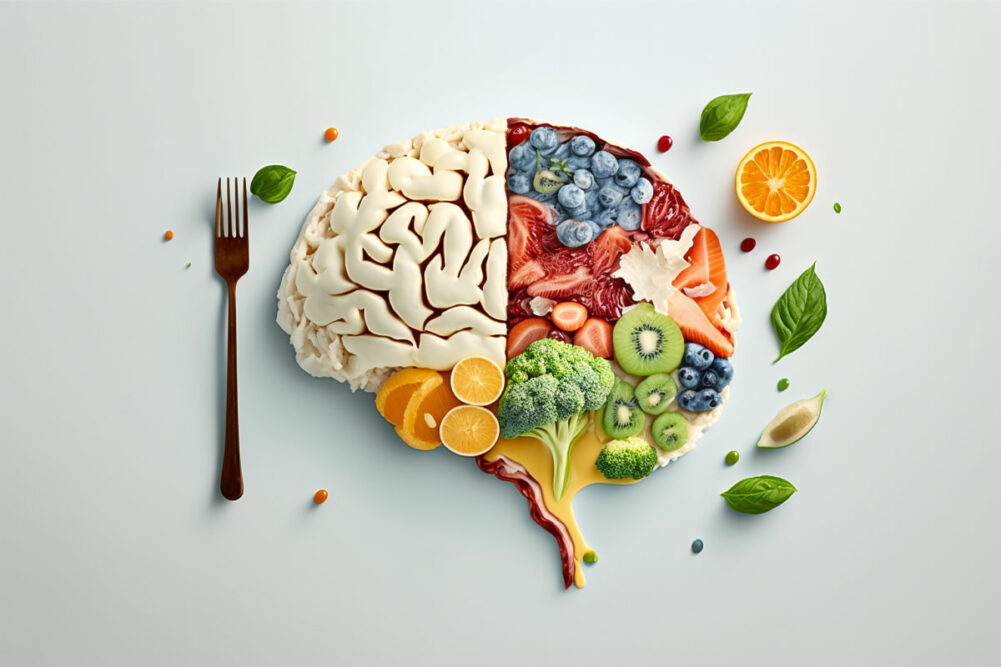CHICAGO — Emerging sources of caffeine, including yerba mate, guayusa and yaupon holly, are among ingredients tapping into expanding consumer demand for food and beverages that support brain health. Adaptogens, B vitamins and choline also may contribute to cognitive wellness, according to Mintel, a market intelligence firm.
“Focus and productivity are poised to become the next benefits consumers seek from food and drink products,” said Stephanie Mattucci, director of Mintel Food & Drink and Purchase Intelligence, during a presentation at IFT FIRST, the Institute of Food Technologists’ annual event held July 16-19 in Chicago.
However, she noted, “eating for a healthy brain is a rather new concept for many consumers” when compared to more common claims around immunity and heart health.
“Brands can encourage consumers to seek out functional foods for mood and cognitive health by starting with safe and familiar ingredients, such as proven nutrients like B vitamins and choline,” she said.
Formulations offering brain and body benefits also may resonate with consumers, Ms. Mattucci said, noting half of functional food and drink shoppers in the United States prefer products to promote both physical and mental health.
Alternatives to coffee and tea are gaining steam, Ms. Mattucci said. The holly plants guayusa, yerba mate and yaupon contain caffeine and compounds such as theobromine, which has been linked to memory and mood balancing. Additionally, lower-caffeine coffee beans and blends may deliver sustained energy with fewer side effects, she said.
“Pairing caffeine with L-theanine may also help to improve focus and improve cognitive skills,” Ms. Mattucci said.
Adding adaptogens or functional mushrooms may reduce jitters and anxiety associated with caffeine consumption, she said. Several such blends are marketed to “improve concentration” and prevent “caffeine crash.”
“In addition to helping the body restore balance and cope with stress, some adaptogens support energy or mental clarity,” Ms. Mattucci said. “Simply put, they are botanical substances that can help the body restore balance and cope with physical or mental stress.”
She pointed to four adaptogens with brain-boosting potential. Ashwagandha is known for promoting balance within the body. Holy basil, also known as tulsi, and brahmi, also known as bacopa monnieri or water hyssop, are Ayurvedic herbs believed to have positive effects on memory. Schisandra is a berry used in traditional Chinese medicine that supports energy, liver and blood glucose levels and may offer anti-aging benefits, Ms. Mattucci said.
“When we’re looking at the landscape of products that are already out there, those food and drink products that are making a brain or nervous system claim, the most common adaptogen we’re seeing in those products is Korean ginseng, followed by ashwagandha and maca,” she said.
Over the past five years, 82% of global food and drink launches featuring adaptogens were beverages, primarily teas and meal replacement shakes, she said.
“When it comes to innovation with adaptogens, beverages are certainly paving the way,” she said.
B vitamins are already well-established in the marketplace and may add credibility to products featuring less-familiar functional ingredients, Ms. Mattucci said. In the past five years, 45% of global food and drink launches with a brain or nervous system claim and 37% of food and drink launches with an energy claim incorporated a B vitamin. Vitamin B6 is the most common on labels, she said.
“Natural sources of B vitamins can be positioned as safe and familiar nutrients for mood and cognitive health as well as supporting metabolism and contributing to the body’s ability to produce energy and supporting neurotransmitters, which plays such a key role in our mood and mental health,” Ms. Mattucci said.
She described choline as an “under-consumed and often underdiscussed” nutrient playing a role in nerve conduction and cognitive functions.
“It’s certainly essential for health through all life stages from infant to maternal health all the way to healthy aging, but a staggering 90% of Americans do not get enough choline,” she said, noting choline as an ingredient is mostly used in baby and toddler foods. She said it also has potential in healthy aging formulations.
“Citicoline is a form of choline that’s used by the brain to repair neurons and support age-related cognitive decline,” she said. “There are other phospholipids associated with choline as well that we are starting to see appear with choline on-pack claiming to support cognitive and healthy brain function.”
Choline is a key ingredient in a pair of powdered mixes developed by a startup exhibiting at IFT FIRST. Leto Foods, based in Chicago, showcased a vanilla plant protein powder and a vanilla chai latte powder, both formulated with choline and vitamin B12 to support memory, mood and attention, according to the company.




